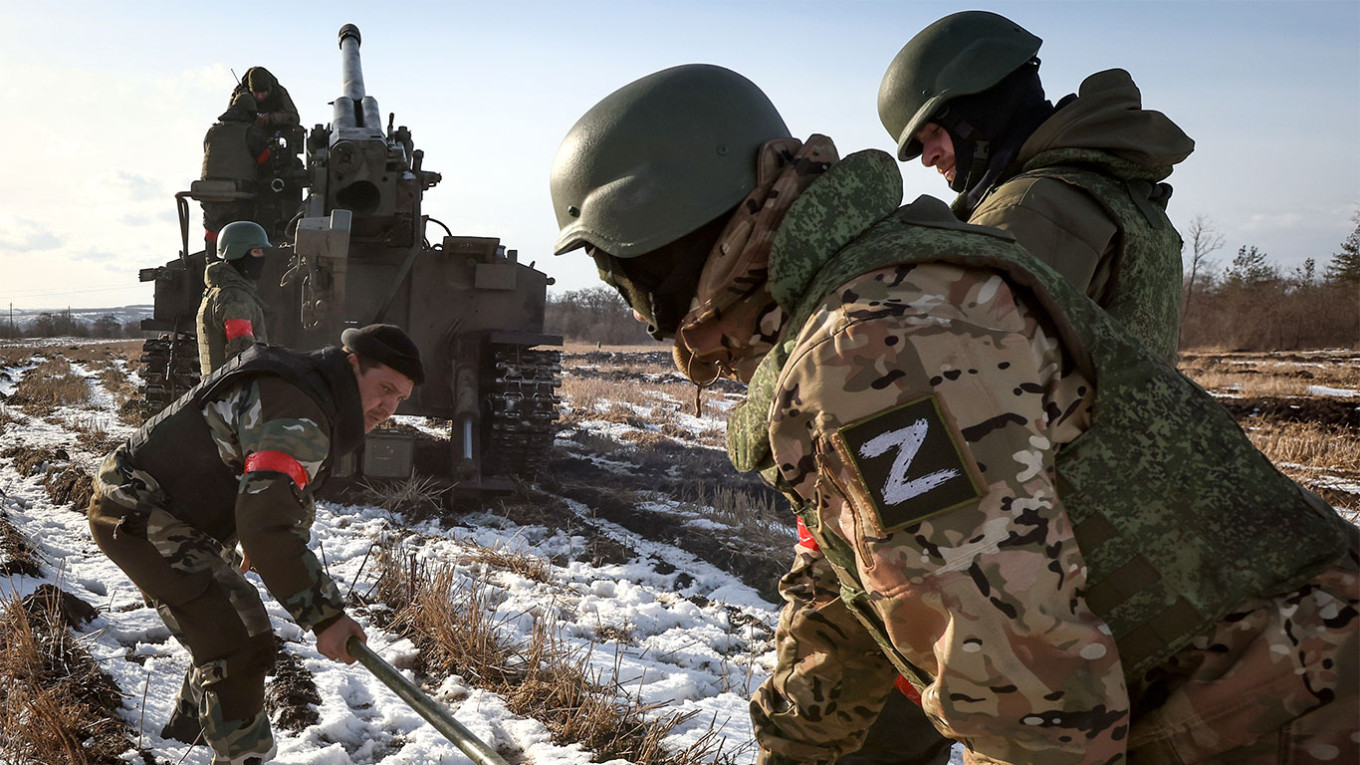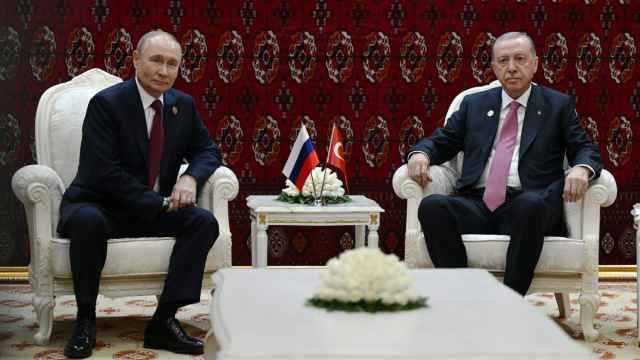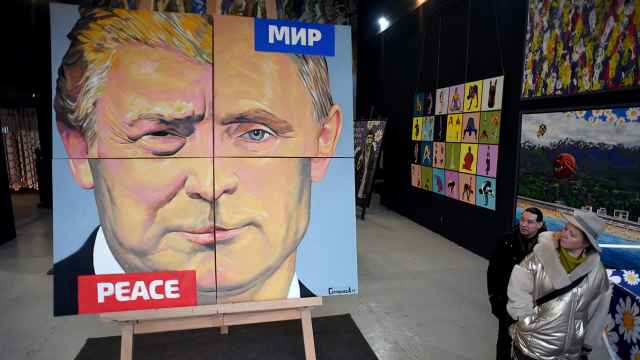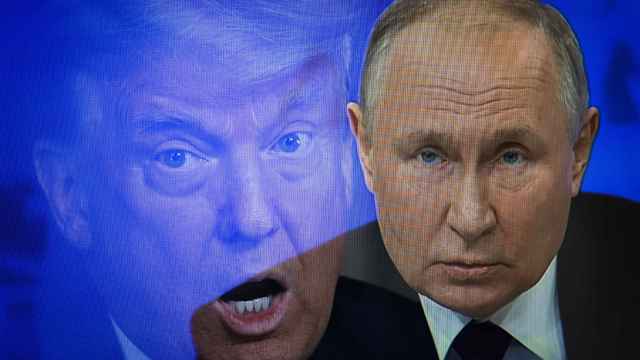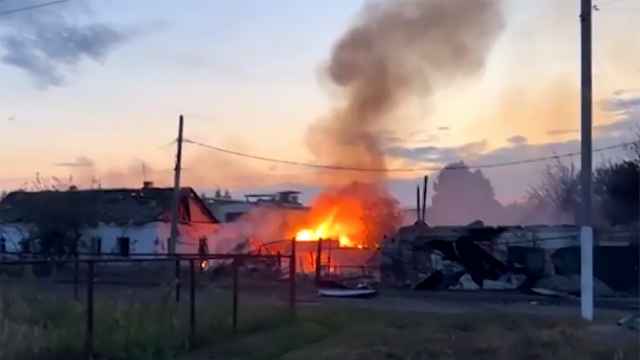The tougher the rhetoric of the Russian regime, the more starkly obvious the contrast between its words and actions. Expectations of President Vladimir Putin’s recent state-of-the-nation address were high enough for it to be broadcast live by international media. The Russian president tried to live up to the hype by threatening to conduct nuclear tests, among other things. Nevertheless, the impact fell short of his apparent intentions, and the address quickly disappeared from the news agenda.
Nor did the first anniversary of Russia’s invasion of Ukraine on Feb. 24 bring the escalation that had been feared. Moscow’s radical rhetoric failed to materialize into mega-strikes on Ukrainian territory or any other major developments.
The Kremlin’s words and deeds had parted ways long before the February anniversary. The explosion on the Crimean Bridge at the start of October prompted speculation over impending retaliation, and many expected Putin to respond by declaring martial law on Oct. 19. That did happen, but it was partial, only applied to certain territories, and was soon forgotten.
The same day, General Sergey Surovikin — the then head of the Russian military in Ukraine — warned of upcoming “difficult decisions,” which sounded ominous and was interpreted by some as a reference to the use of tactical nuclear weapons. The sudden death of the Belarusian foreign minister, Vladimir Makei, in late November also prompted alarm and speculation, especially given the more frequent Russia-Belarus summits. Finally, a large-scale Russian offensive and/or second wave of mobilization was widely expected in the first few days of the new year.
Yet the partial mobilization announced on Sept. 21 remains the Kremlin’s last “big” decision to date. Since then, there has been a considerable decline in the intensity of military decision-making, and key events such as the fall of the city of Kherson generated no official reaction whatsoever.
This lengthy pause raises questions, not least over whether the Russian elites and public support the government’s radical rhetoric. Of course, some Russians are radicalized and support the war, but their numbers have not grown substantially, and most people simply aren’t politically active.
Those who agree with the official stance do so for a variety of reasons: some think that they should support their country whatever happens; others are worried for their compatriots on the front lines; some fear even the hypothetical possibility of a Russian defeat.
As for the elites, they don’t necessarily agree with the war’s supporters, who tend to be mostly older people from rural areas and small towns. Those in the establishment are certainly more informed than the rest of the country, but they can do little to change the situation and have few channels to express their frustration. This is not to say that new escalations are not possible, but morale is quite low given the general disquiet over the current state of affairs.
Amid the lack of action, the concepts of “victory” and “success” are becoming increasingly blurred. It’s also becoming obvious that there is zero tolerance within the system for “activists”: those willing to take the initiative and act on the system’s behalf without orders from above.
Both senior officials and the apparatchiks from specific government agencies are doing what they can to curb activism. A classic example is the conflict between the businessman Yevgeny Prigozhin, head of the controversial Wagner private military company, and the Defense Ministry. Prigozhin has been seeking to become an activist, but so far unsuccessfully. Nor have public officials who have moved to the annexed territories received the anticipated career boost either.
While the elites are essentially distancing themselves from the government, the main activist and player representing the system is Putin himself. But his public actions are not enough to make up for the sluggishness of the elites, which at times borders on sabotage.
Another reason for the current pause is the lack of resources and military capabilities needed to affect dramatic changes on the front lines. The Russian armed forces weren’t prepared for such a lengthy and large-scale conflict, so most scenarios relied on missile and air strikes. The real potential of the Russian armed forces is also a matter of public debate. There was a lot of detailed analysis of the first weeks of the Ukraine campaign, but it’s hard to come by thorough and objective reflection on what happened next. Frequent personnel changes in Russia’s military command also play a role here, although it’s not always evident what tactical impact they carry.
It’s still unclear what a second wave of mobilization could accomplish, or what the political and socioeconomic fallout could be. While the first wave passed without major incident, the biggest impact was on small towns and rural areas. A second wave will be more keenly felt in big cities, which certainly won’t improve relations between the state and the public.
It’s also possible that the Russian authorities have made a conscious decision to put things on hold until circumstances improve. It has long been speculated that Moscow is seeking to provoke conflict among the Western coalition partners, especially European Union governments, which it expected would have to address public discontent triggered by sharp energy price hikes.
Russia may also be looking for greater disagreements within the United States if the war continues until the 2024 presidential elections there. Moscow may still believe that Kyiv’s Western partners will grow tired of the war and start pressuring Ukraine to freeze the conflict.
Meanwhile, the 2024 Russian presidential elections are also looming on the horizon. Moscow will certainly want to achieve some tangible results by then, but it’s even more important to avoid sustaining new losses, while a new escalation would increase the risk of such losses.
Paradoxically, the Kremlin believes de-escalation is unacceptable and constantly announces its radical intentions in the media and through massive public gatherings. Yet its actual steps are nowhere near as radical as expected by either its supporters or adversaries.
The situation is changing faster than the authorities can make and implement decisions. This doesn’t necessarily weaken the Russian leadership’s position, but it occasionally enables skeptics to say that even Moscow itself isn’t all that certain about the feasibility of its own plans.
Meanwhile, Ukraine and its international partners continue to look for Russia’s vulnerabilities. One way of forcing Moscow to make mistakes is deliberately trying to push it to take radical new steps. This is perhaps how the Russian authorities saw U.S. President Joe Biden’s trip to Kyiv on Feb. 20, as well as the attack on a Belarusian military airport on Feb. 26. Such events present the Kremlin with a tough choice. A lack of reaction will be interpreted as a sign of weakness, while spontaneous retaliation means falling into the opponent’s trap.
This article was first published by the Carnegie Endowment for International Peace.
A Message from The Moscow Times:
Dear readers,
We are facing unprecedented challenges. Russia's Prosecutor General's Office has designated The Moscow Times as an "undesirable" organization, criminalizing our work and putting our staff at risk of prosecution. This follows our earlier unjust labeling as a "foreign agent."
These actions are direct attempts to silence independent journalism in Russia. The authorities claim our work "discredits the decisions of the Russian leadership." We see things differently: we strive to provide accurate, unbiased reporting on Russia.
We, the journalists of The Moscow Times, refuse to be silenced. But to continue our work, we need your help.
Your support, no matter how small, makes a world of difference. If you can, please support us monthly starting from just $2. It's quick to set up, and every contribution makes a significant impact.
By supporting The Moscow Times, you're defending open, independent journalism in the face of repression. Thank you for standing with us.
Remind me later.



